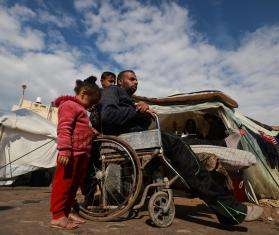Updated on March 18, 2020
There have been no new cases of Ebola virus disease reported since February 17, an important milestone in the outbreak in Democratic Republic of Congo (DRC). However the outbreak is not over yet, and there is a continued need for vigilance.
The last confirmed case was a patient in Beni health zone, in North Kivu province, now the Ebola epidemic’s only active zone of transmission. This patient was discharged from the Ebola treatment center (ETC) on March 3, meaning there are currently no known cases of the disease in DRC. All other health zones that had previously reported cases have crossed the threshold of 42 days without notifying new ones. The World Health Organization (WHO) recommends waiting two full incubation periods—42 days—after the last person tests negative a second time before declaring the end of the outbreak.
Ebola situation report as of March 16, 2020:
| Total cases | 3,444 |
| Total deaths | 2,264 |
| Total recovered | 1,169 |
Dr. Jean-Jacques Muyembe, coordinator of the national committee in charge of the Ebola response, has stated that—if no new cases arise—the epidemic could be declared over on April 12. However, the WHO has warned that there is a "very real risk" of new cases emerging.
Doctors Without Borders/Médecins Sans Frontières (MSF) has been an active player in the Ebola response, caring for patients in two Ebola treatment centers (ETCs) in Beni and Goma, as well as numerous decentralized isolation and transit facilities where people with suspected cases of Ebola are tested before going to a treatment center if needed. MSF closed its Ebola activities in Mabalako and Bunia at the end of January 2020. By the end of February 2020, MSF had also wound down its support to the Mayuano and Somé health areas.
MSF supports infection prevention and control (IPC) in local health care facilities and vaccination activities in the region. Our main priorities are assessing community health needs, providing timely health care to Ebola patients, ensuring appropriate IPC standards in health care facilities, and improving access to and quality of non-Ebola-related health care.
In all our projects, we put patients and communities first and engage with local people and existing health centers to identify needs and prioritize activities. In addition to integrated isolation and treatment facilities for patients with suspected Ebola, MSF also strengthens health care capacities; builds infrastructure for clean water, sanitation, and hygiene; and invests in community outreach and health messaging in health centers across the region.
MSF activities
| People admitted to MSF-supported Ebola facilities | 11,312 |
| Total confirmed cases | 388 |
| Total recovered | 184 |
| People vaccinated - rVSV-ZEBOV (Merck) | 7,000+ (300,330 total) |
| People vaccinated - Ad26.ZEBOV/MVA-BN-Filo (Johnson & Johnson), 1st dose | 9,923 (20,339 total) |
The Ebola response has been hampered by violence in the region, and the security context remains volatile. Attacks allegedly perpetrated by the armed group Allied Democratic Forces (ADF) are regularly reported in the surroundings of Oicha/Beni/Mangina/Biakato in Ituri and North Kivu.
On February 9, thousands of people fled the town of Mangina towards Beni and Butembo following the killings of more than 27 civilians in Makusa and Makiki to the north on February 7 and 8. In response, Ebola activities in Mangina were temporarily suspended and all patients hospitalized in the Mangina ETC were temporarily transferred to the ETC in Beni. Surveillance controls at entry points to Beni were reinforced, but no suspected or confirmed Ebola cases were notified among the displaced people.
On February 12, the WHO Emergency Committee for Ebola virus disease decided to maintain the outbreak’s “public health emergency of international concern” (PHEIC) status. While acknowledging an overall encouraging trend in case incidence and geographic spread, the Committee said it was concerned that rescinding the PHEIC at that moment might have had adverse consequences for the response efforts. The PHEIC declaration was first made on July 17, 2019.
On February 14, four African countries (DRC, Ghana, Burundi, and Zambia) licensed the Ebola vaccine known as rVSV-ZEBOV, manufactured by Merck, for use in their countries. The licensing of the vaccine means that the country can stockpile and widely use this vaccine without a clinical trial protocol.
The epidemic has severely destabilized DRC’s already fragile health care system. People's medical needs extend well beyond Ebola, as demonstrated by the ongoing measles epidemic that has claimed many more lives. Phasing out the Ebola intervention will likely have far-reaching impacts. Discussions about the next steps required once the outbreak has ended should start now and consider the many urgent health needs of the population.




